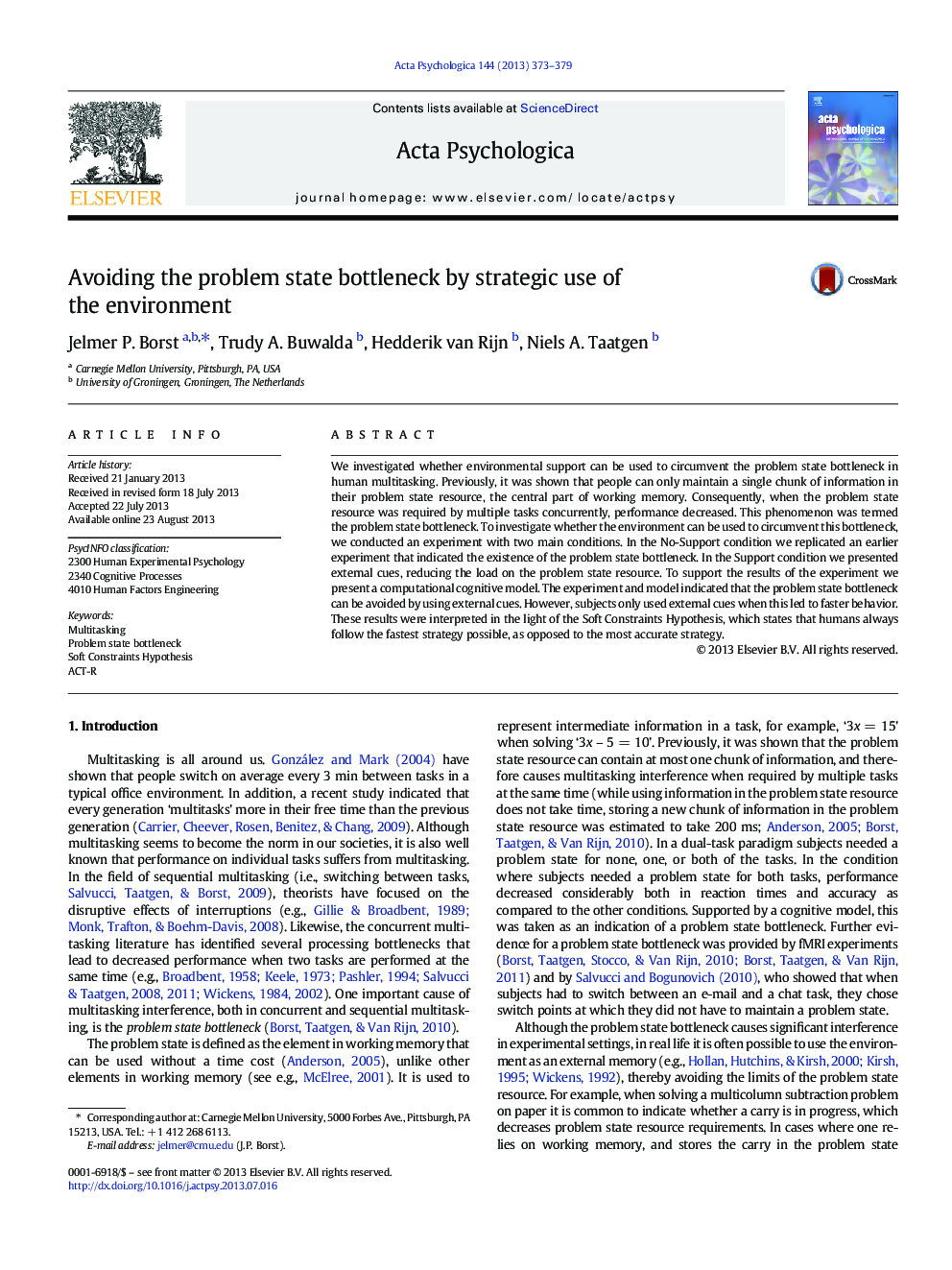| Article ID | Journal | Published Year | Pages | File Type |
|---|---|---|---|---|
| 10453784 | Acta Psychologica | 2013 | 7 Pages |
Abstract
We investigated whether environmental support can be used to circumvent the problem state bottleneck in human multitasking. Previously, it was shown that people can only maintain a single chunk of information in their problem state resource, the central part of working memory. Consequently, when the problem state resource was required by multiple tasks concurrently, performance decreased. This phenomenon was termed the problem state bottleneck. To investigate whether the environment can be used to circumvent this bottleneck, we conducted an experiment with two main conditions. In the No-Support condition we replicated an earlier experiment that indicated the existence of the problem state bottleneck. In the Support condition we presented external cues, reducing the load on the problem state resource. To support the results of the experiment we present a computational cognitive model. The experiment and model indicated that the problem state bottleneck can be avoided by using external cues. However, subjects only used external cues when this led to faster behavior. These results were interpreted in the light of the Soft Constraints Hypothesis, which states that humans always follow the fastest strategy possible, as opposed to the most accurate strategy.
Related Topics
Life Sciences
Neuroscience
Cognitive Neuroscience
Authors
Jelmer P. Borst, Trudy A. Buwalda, Hedderik van Rijn, Niels A. Taatgen,
